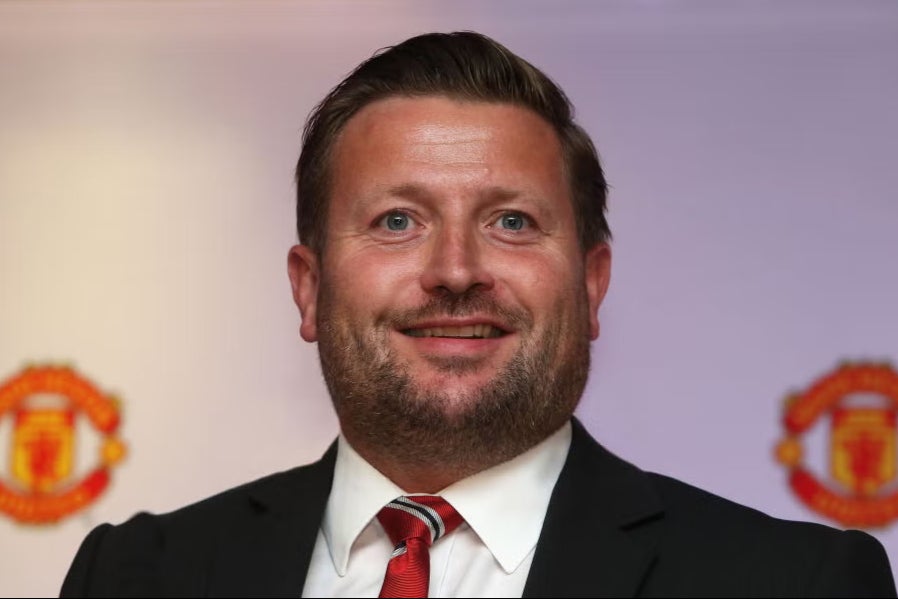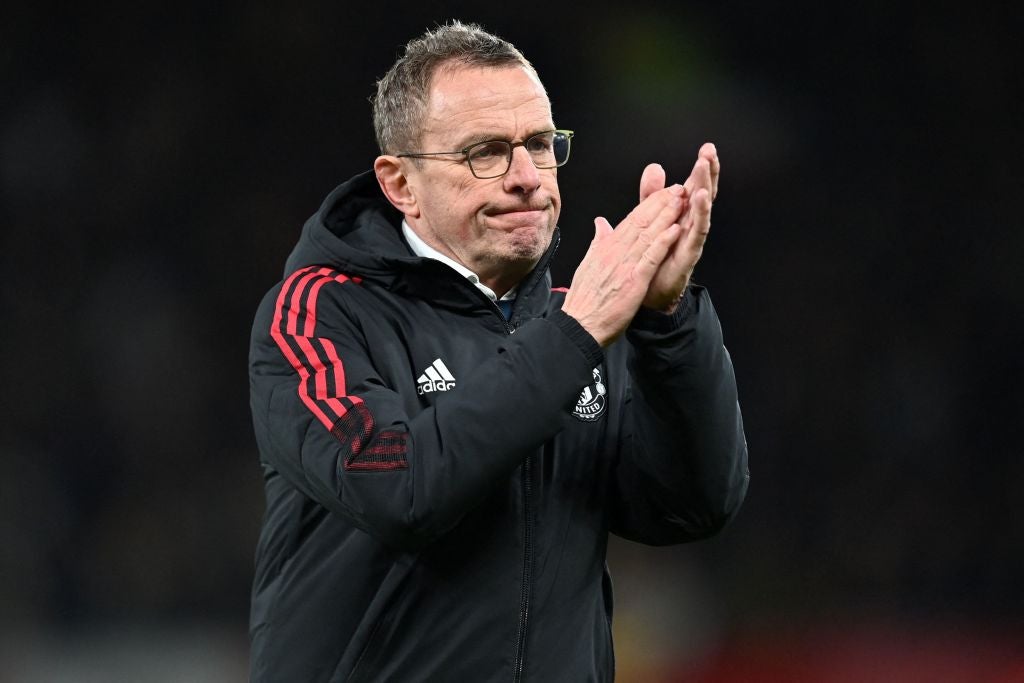What should Manchester United fans expect from incoming chief executive Richard Arnold?
A change at the very top of the club, but will it lead to a change in the on-pitch holding pattern?

Your support helps us to tell the story
From reproductive rights to climate change to Big Tech, The Independent is on the ground when the story is developing. Whether it's investigating the financials of Elon Musk's pro-Trump PAC or producing our latest documentary, 'The A Word', which shines a light on the American women fighting for reproductive rights, we know how important it is to parse out the facts from the messaging.
At such a critical moment in US history, we need reporters on the ground. Your donation allows us to keep sending journalists to speak to both sides of the story.
The Independent is trusted by Americans across the entire political spectrum. And unlike many other quality news outlets, we choose not to lock Americans out of our reporting and analysis with paywalls. We believe quality journalism should be available to everyone, paid for by those who can afford it.
Your support makes all the difference.It can appear as if the more things change at Old Trafford, the more they stay the same. On the surface, that would also appear to be the case with Richard Arnold succeeding Ed Woodward.
Woodward will step down as Manchester United’s executive vice-chairman and most senior official at the beginning of next month after an eight-and-a-half year reign in which success has been measured on balance sheets rather than in the trophy cabinets. Woodward himself would admit that much.
Four managers, no Premier League titles and more than £1bn spent on a mixed bag of signings is not the full extent of his legacy, and does not account for the volatility of taking over upon the departure of a legendary manager in Sir Alex Ferguson, but it is what he will be remembered for and not unfairly so.
Arnold – whose official title will be chief executive, rather than Woodward’s executive vice-chairman – is in many ways the continuity candidate. He has been the frontrunner for the job since his friend and colleague announced his impending departure last April, upon the collapse of the doomed Super League project.
Arnold grew up in the northwest of England, outside Chester, and is the same age as Woodward. Both attended the University of Bristol together, though only met while working at the accountancy firm PricewaterhouseCoopers.
Joining United as commercial director in 2007, he was responsible for the management and growth of the club’s sponsorship, merchandising and digital media arms among other areas. He would later become recognised as the driving force behind the club’s many official country-specific sponsorships signed with noodle, mattress and lubricant oil partners across the globe.
Though easily – and regularly – mocked, it is an approach that has been replicated by rivals across Europe and helped to drive the commercial side of United’s business, which Arnold has overseen since being promoted to managing director in 2013, at the same time as Woodward took on ultimate responsibility for day-to-day operations.
Those commercial revenues have proved to be the bedrock of United’s business model over the last eight years, representing more than half of the revenue that the club brought in each of the last two seasons.
Since Arnold became managing director, United’s commercial revenues rose from £152m in 2013 to £279m in 2020, before falling to £232m due to the effects of the pandemic. That figure is still the highest of any Premier League club other than Manchester City, but it was also stagnant from 2016 onwards, perhaps reflecting a corresponding stagnation on-the-pitch.
And it is football results rather than financial returns that Arnold will be judged on, even if he is expected to take more of a backseat role on that front than his predecessor.
Whereas Woodward was hands-on in several aspects of the football side of the club until recent years, lunching with the executives of European rivals to discuss transfer dealings, Arnold is expected to delegate and adopt a more decentralised approach.
Football decisions will be led by the football department, headed up by John Murtough, who was appointed to the newly-created role of football director last year – a role which Arnold is said to have pushed for. Arnold is also believed to have been directly involved in the move to hand interim manager Ralf Rangnick a consultancy role beyond the end of the season.
The football department as a whole, which includes technical director Darren Fletcher, is expected to have altogether greater autonomy under Arnold's reign.
There are differences, then, and that will be the biggest departure from Woodward’s years in charge. Other changes will be more subtle. Whereas Woodward carried out his duties from the club’s Mayfair offices in London, Arnold will continue to be based at Old Trafford. It may prove an advantage to be on the ground in Manchester, particularly in weeks like these where the divisions and tensions within the playing squad come to the fore in the wake of a bad result.

Arnold is described by those who know him as a “consensus builder” with a thick skin who will be able to withstand the pressures and scrutiny that are part of the role. Woodward’s advice to his successor is said to have been to focus on the long-term and ignore the noise that surrounds the club. It is easier said than done, as is the task at the top of Arnold’s to-do list.
Appointing a new manager was Woodward’s first priority when, in 2013, Ferguson announced his retirement. The lack of an overarching structure around his successor, David Moyes, was one of the outgoing executive’s biggest mistakes and greatest regrets.
At least Arnold does not have to directly replace such a totemic and influential figure in the United’s history, who was a one-man club by the end – “every single person marching behind a pied piper”, as one Old Trafford source from those days puts it – but in many ways, he does. The vacuum Ferguson left still needs to be filled.
United have changed players, changed managers, changed their internal structure and have now changed the man responsible for overseeing it all. Time will tell whether results change too.
Join our commenting forum
Join thought-provoking conversations, follow other Independent readers and see their replies
Comments